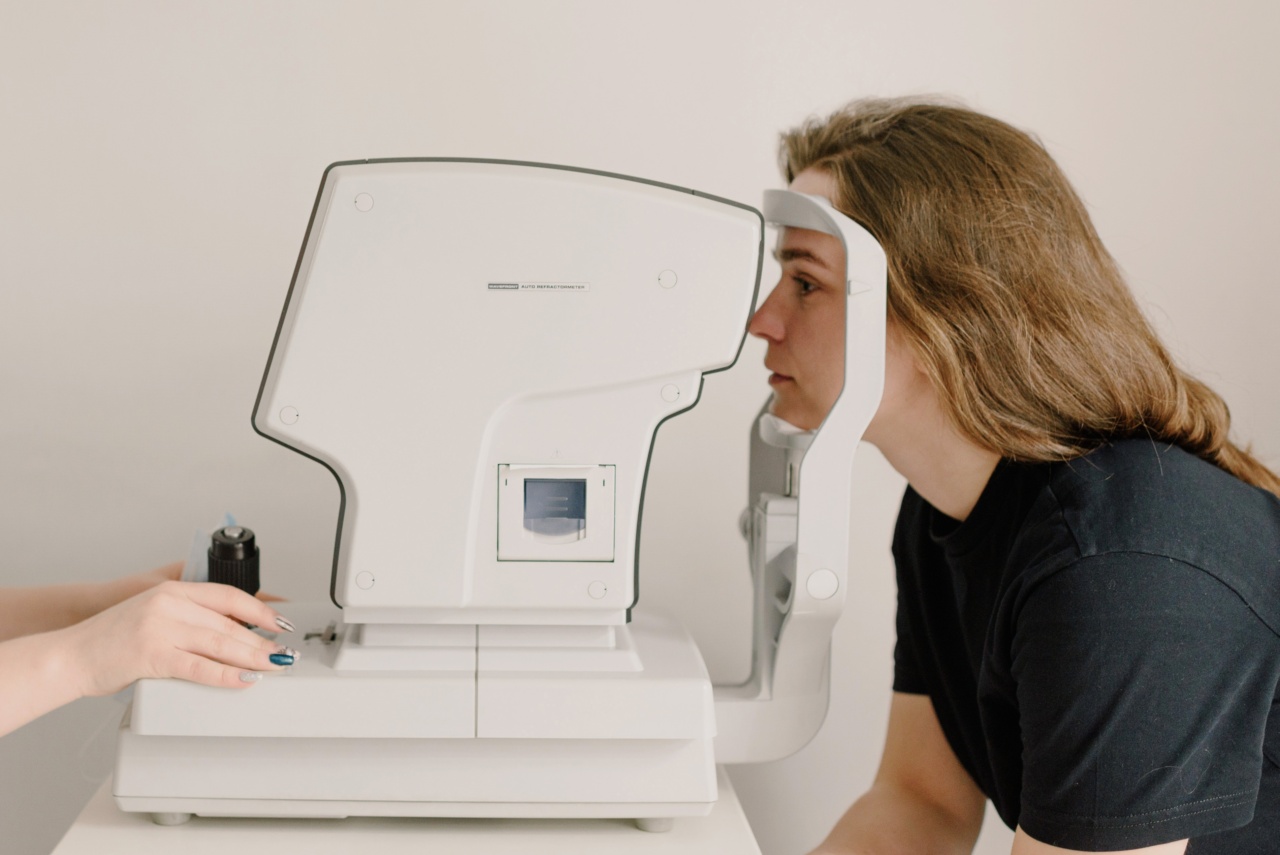Magnesium is an essential mineral that plays a vital role in various bodily functions.
It contributes to the proper functioning of nerves and muscles, helps regulate blood pressure, supports a healthy immune system, and is involved in over 300 enzymatic reactions in the body. However, many individuals may unknowingly suffer from magnesium deficiency, which can lead to various health issues.
In this article, we will explore the signs and symptoms of magnesium deficiency, examine its causes, and provide useful tips to check if you are deficient in this crucial mineral.
Signs and Symptoms of Magnesium Deficiency
Magnesium deficiency can manifest itself in several ways, and its symptoms are often nonspecific, making it challenging to diagnose. Here are some common signs and symptoms that may indicate magnesium deficiency:.
1. Muscle Spasms and Cramps
One of the most common symptoms of magnesium deficiency is experiencing muscle spasms and cramps. These involuntary contractions can occur in various muscles, such as the legs, feet, or even facial muscles.
If you frequently suffer from muscle spasms, it might be beneficial to check your magnesium levels.
2. Fatigue and Weakness
Inadequate magnesium levels can lead to fatigue and weakness, as magnesium is involved in energy production within every cell of our body. If you often feel tired, even after getting enough sleep, magnesium deficiency could be a contributing factor.
3. Irregular Heartbeat
Magnesium plays a vital role in maintaining a healthy heart rhythm. An imbalance in magnesium levels can cause arrhythmias or irregular heartbeats.
If you experience heart palpitations or arrhythmias frequently, it’s essential to investigate the possibility of magnesium deficiency.
4. Anxiety and Depression
Magnesium is also crucial for maintaining proper neurological function. Low magnesium levels have been associated with an increased risk of anxiety and depression.
If you frequently experience feelings of anxiety or depression, considering magnesium deficiency as a potential cause might be beneficial.
5. Insomnia
Magnesium deficiency can affect sleep quality, leading to insomnia or difficulty falling asleep. If you struggle with falling asleep or have poor sleep quality, it may be worth examining your magnesium levels.
6. High Blood Pressure
Magnesium plays a vital role in regulating blood pressure. When magnesium levels are insufficient, blood vessels may constrict, leading to increased blood pressure.
If you have consistently high blood pressure levels, checking magnesium status can provide valuable insights.
7. Migraine Headaches
Migraine sufferers often have lower magnesium levels compared to those who do not experience migraines. Adequate magnesium levels help relax blood vessels and alleviate migraine symptoms.
If you frequently experience debilitating migraines, it might be worth considering magnesium supplementation.
Causes of Magnesium Deficiency
Several factors can contribute to magnesium deficiency. Some common causes include:.
1. Inadequate Dietary Intake
A diet lacking in magnesium-rich foods can lead to deficiency over time. Processed foods, refined sugars, and unhealthy fats are often devoid of magnesium, while dark leafy greens, nuts, seeds, and whole grains are excellent sources.
Evaluating your diet and incorporating magnesium-rich foods can help prevent deficiencies.
2. Gastrointestinal Disorders
Gastrointestinal disorders like Crohn’s disease, celiac disease, or chronic diarrhea can impair magnesium absorption.
Even if you consume sufficient magnesium, malabsorption issues may lead to deficiencies, making it important to identify and treat underlying gastrointestinal conditions.
3. Medications
Certain medications like diuretics, antibiotics, proton pump inhibitors, and oral contraceptives can increase magnesium excretion or interfere with absorption, leading to deficiencies.
If you regularly use these medications, monitoring your magnesium levels and considering supplementation may be necessary.
4. Alcoholism
Alcohol abuse can deplete magnesium levels due to increased urinary excretion, reduced absorption, and gastrointestinal damage. If you consume alcohol regularly, you may be at a higher risk of magnesium deficiency.
How to Check for Magnesium Deficiency
Now that you are aware of the signs, symptoms, and causes of magnesium deficiency, it’s essential to know how to check if you are deficient in this mineral.
1. Blood Test
A blood test is commonly used to measure magnesium levels in the body. However, keep in mind that only around 1% of total body magnesium is present in the blood, making it less reliable as a standalone indicator of deficiency.
2. Magnesium RBC Test
A more accurate way to assess magnesium levels is through a red blood cell (RBC) magnesium test. This test measures the magnesium content within red blood cells, offering a better understanding of tissue magnesium levels.
3. Magnesium Ion Selective Electrode Test
Another method to determine magnesium levels is the magnesium ion selective electrode test. This test measures the concentration of ionized magnesium in the blood, providing insights into the bioavailability of this mineral.
4. Clinical Symptoms
In addition to laboratory tests, evaluating clinical symptoms can also help identify magnesium deficiency.
If you recognize several of the symptoms mentioned earlier, it’s wise to consult with a healthcare professional who can guide you accordingly.
Treating Magnesium Deficiency
Addressing magnesium deficiency often involves dietary changes and supplementation. Increasing your intake of magnesium-rich foods, such as dark leafy greens, nuts, seeds, and whole grains, can help replenish magnesium levels naturally.
If dietary modifications are not sufficient, magnesium supplements may be recommended.
It’s important to consult with a healthcare professional before starting any supplementation to determine the appropriate dosage suitable for your specific needs.
The Bottom Line
Magnesium deficiency is more common than you might think and can have significant impacts on your health and well-being.
Recognizing the signs and symptoms, understanding the causes, and knowing how to check for deficiencies is crucial for maintaining optimal magnesium levels. If you suspect magnesium deficiency, reach out to a healthcare professional who can assist in diagnosing and developing an appropriate treatment plan.



























